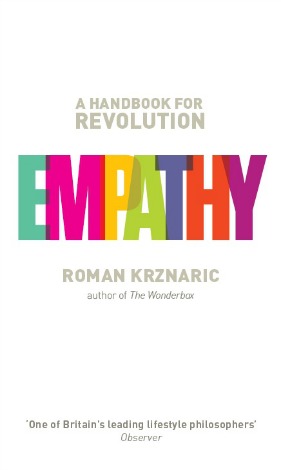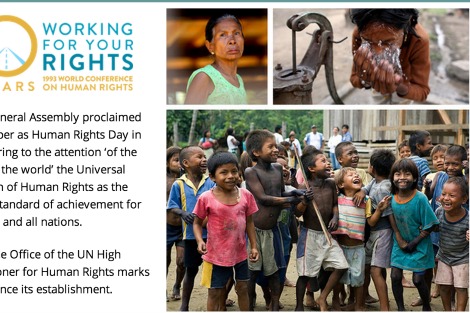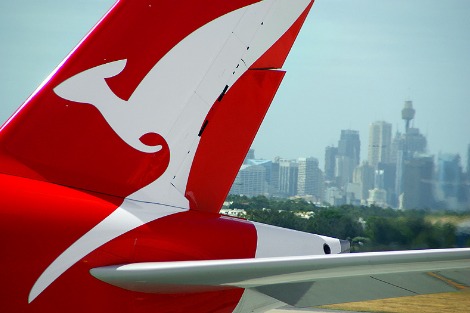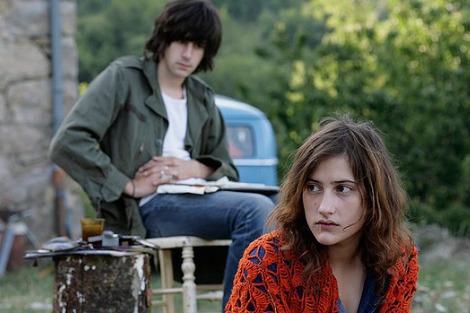Keywords: Cultural Revolution
-

INTERNATIONAL
Twenty-five years ago the tanks rolled into Tiananmen Square. One eyewitness kept a tally of the dead that reached 2600 before hospitals went mum due to pressure from above. If China is to overcome the challenges it will face in the decades ahead, it must draw upon the great reserve of strength, the spirit of solidarity that was on display among the protesters that spring. Instead there remains a concerted effort to forget.
READ MORE 
-

AUSTRALIA
- Frank Brennan
- 11 April 2014
1 Comment
'Whether or not we have a bill of rights, much of our human rights jurisprudence remains partial, failing to extend rights equally to all. Once we investigate much of the contemporary discussion about human rights, we find that often the intended recipients of rights do not include all human beings but only those with certain capacities or those who share sufficient common attributes with the decision makers. It is always at the edges that there is real work for human rights discourse to do.' Frank Brennan's Blackfriars Lecture
READ MORE
-

ARTS AND CULTURE
- Barry Gittins and Jen Vuk
- 14 February 2014
3 Comments
While realpolitik can drive us beyond a healthy scepticism to cynicism and indifference, British cultural thinker Roman Krzaric contends that when we look beyond the real — through imagination, creativity, vulnerability and networking — we can bring about the ideal of 'empathy on a mass scale to create social change' and even go about 'extending our empathy skills to embrace the natural world'. Without dreamers like Krzaric, we're stuffed.
READ MORE 
-

MEDIA
- Ellena Savage
- 24 January 2014
4 Comments
Last week a troubling story broke on sports journalism site Grantland. While investigating the background of Dr V., an avowed physicist who had invented a revolutionary golf putter, journalist Caleb Hannan discovered that Dr V. was a trans-woman. In the course of the investigation, Dr V. committed suicide. This tragic case raises questions about journalistic ethics, not least of which is if journalism is, by its very nature, unethical.
READ MORE 
-

INTERNATIONAL
- Andrew Hamilton
- 12 December 2013
4 Comments
The Declaration of Human Rights exists as a standard by which we can judge our national life and priorities. By these criteria Australian public life displays grounds for concern. In the case of asylum seekers, prisoners and bikies, governments spend more effort on seeking to evade the claims of human rights than to uphold them. In the 'nonsense on stilts' stakes the unfettered appeal to national interest walks far taller than advocacy of human rights.
READ MORE
-

AUSTRALIA
- Michael Mullins
- 09 December 2013
6 Comments
No patriotic Australian wants to see Qantas go out of business. But the principles of both good business and social inclusion demand the government not thwart competition from Virgin and its cashed up foreign shareholders. In two decades, competition has lowered fares and made it possible for less privileged Australians to fly.
READ MORE
-

ARTS AND CULTURE
- Tim Kroenert
- 05 December 2013
As high school students they are too young to have begun the cultural revolution. But they try to fan its flames and bring its ideals to bear. Their idealism is at times tested against the cynicism or jaded moral certitude of older revolutionaries, one of whom chastises them for entertaining legitimate doubts about the means employed by Mao Zedong. There clearly is a gulf between healthy skepticism and wilful blindness.
READ MORE
-

INTERNATIONAL
- Ray Cassin
- 22 November 2013
10 Comments
The assassination of John F. Kennedy 50 years ago elicited a particular quality of grief. It was not only a matter of mourning the violent death of a world leader who, at the time, was much admired. The notion also stuck that something called innocence had been lost because of what had happened in Dallas. That sense has withered under reassessments of Kennedy's character and record in office but it has never been extinguished entirely.
READ MORE 
-

INTERNATIONAL
The Cold War not only divided Berlin. It divided human rights into two politicised and hostile camps. Socialist nations championed social and economic rights over the civil and political rights prioritised by capitalist nations. Twenty years ago this month, the UN World Conference on Human Rights in Vienna rejected this demarcation and declared that human rights were indivisible, complementary and interdependent.
READ MORE 
-

RELIGION
- Frank Brennan
- 18 March 2013
3 Comments
Change is upon the Church. Just recall the scene when the new pope emerged on the Vatican balcony. He appeared with none of the papal trimmings of office, and did not once did he refer to the papacy. Could something of this new papal style help Catholics engage more creatively with their fellow citizens? Text from Frank Brennan's lecture 'How Can the Catholic Church Contribute to a Better Culture for Life?'
READ MORE
-

ARTS AND CULTURE
- Tim Kroenert
- 27 September 2012
2 Comments
The book is essentially misogynistic. Women are objects of hedonistic possibilities in the same way that drugs are. Even the Kerouac figure Sal's self-deprecating account of failing to impress a virginal lover manages to marginalise the woman in question. The film seeks to rectify this by giving flesh to its female characters.
READ MORE 
-

EDUCATION
- John Warhurst
- 09 July 2012
10 Comments
Labor speechwriter Graham Freudenberg observed that ‘the oldest, deepest, most poisonous debate in Australia has been about government aid to church schools’. The most dramatic episode in the history of church state relations in Australia was the Goulburn schools strike, which took place 50 years ago this month.
READ MORE 